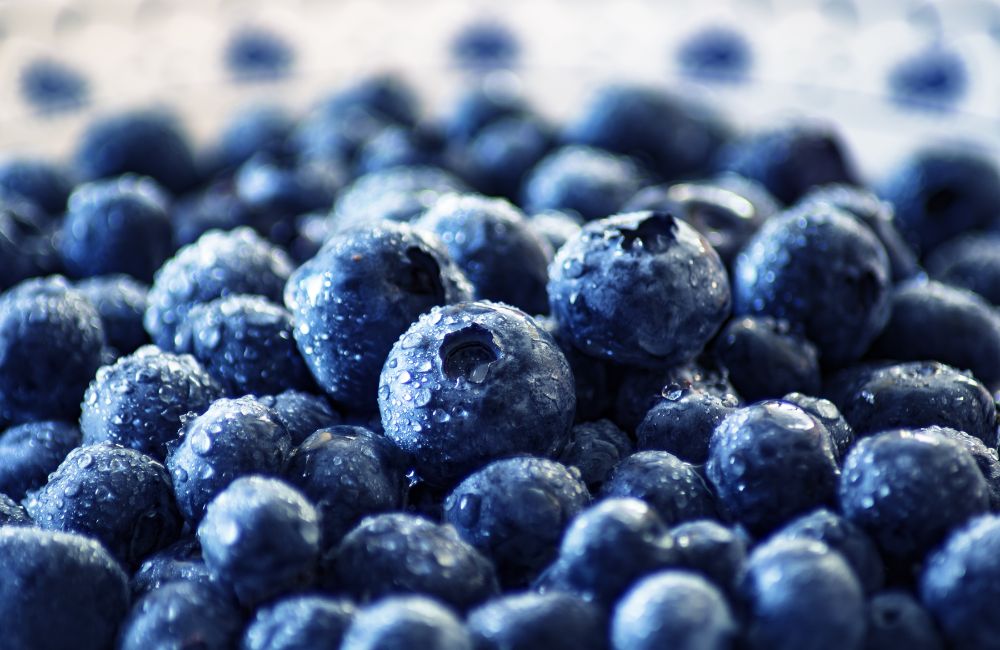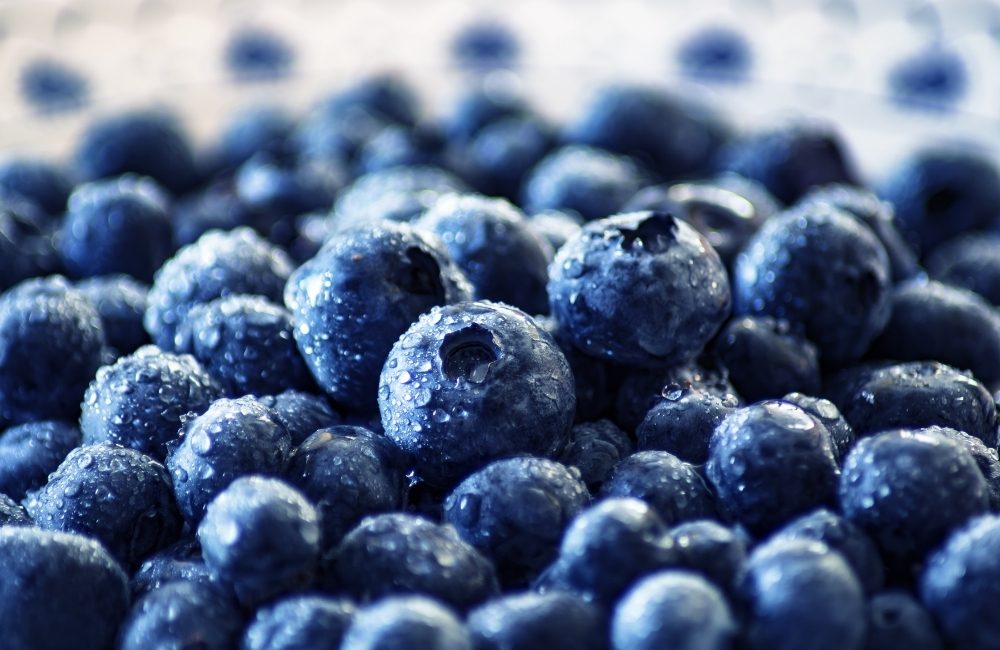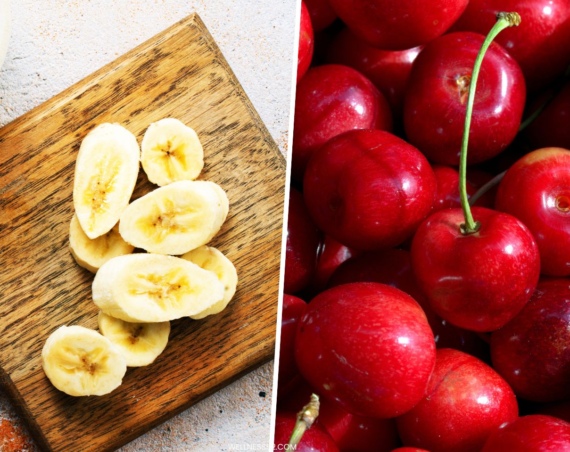
The foods the longest-living people in the world are eating every day. If you want to age gracefully, you should too.
Getting older is a part of life. And while we all know and accept this, many of us don’t want to look or feel older.
We want that youthful glow, a sharp mind, and to maintain our mobility and strength.
There are some strategies you can try to maintain your youth such as wearing sunscreen, exercising, getting enough sleep, and drinking water to hydrate.
But did you know that what you eat also affects how quickly your body ages?
What we put into our bodies is extremely important and can help prevent signs of aging more than some of us realize and can be more important than an expensive treatment, a pricey retinol cream, hyaluronic acid-containing lotions, and high-peptide skincare products.
Avoiding highly processed foods while consuming foods full of fiber, and antioxidants is good for the human body and can have an anti-aging effect by decreasing inflammation, fighting off harmful free radicals, helping us to maintain cognitive abilities, and more.
Getting older is a part of life but having a healthy diet can help you look and feel better. If you have questions, talk to a registered dietitian or your doctor.
14 Foods The Longest-Living People In the World Eat Every Day

Science Says Doing This Specific Exercise Will Slow Down Aging
This Obscure Food Drastically Improves Memory, According to a New Study
Here are 7 of the best anti-aging foods to try to incorporate into your diet regularly.
1. Blueberries
Blueberries (and berries in general) are sometimes called a superfood because they are rich in nutrients.
Particularly, they have a variety of antioxidants like resveratrol and phytonutrients. Those antioxidants are known to help ward off harmful free radicals caused by sun damage.
Berries also contain a high level of compounds called anthocyanins, which are powerful antioxidants. Those compounds are also what give blueberries their notably blue color.
This berry is a great source of vitamin C and fiber.
Vitamin C is one of the most powerful antioxidants and has also been shown to reduce the levels of free radicals in the body. It also will boost collagen production.
While we still have a lot to learn about the importance of collagen, it’s linked to some aspects of our health.
Collagen is a chain of amino acids that is thought to contribute to skin health, specifically skin strength and elasticity. Think of it as a glue that keeps things together.
Increased collagen synthesis is also linked to nail strength and nail growth. Some scientists think that these peptides can decrease how quickly the hair thins causing a collagen deficiency.
Collagen is also thought to be involved with your joints, tendons, and ligaments by keeping them strong.
Fiber helps cultivate a healthy gut microbiome, which is the bacteria that live inside our gut. Recent studies have shown how our gut microbiome plays a big role in our overall health. In particular, it affects our skin’s appearance and elasticity.
It is recommended that adults consume at least 20 grams of fiber each day and one cup of blueberries provides approximately 4 grams of fiber.
Studies have also shown that blueberries help enhance circulation. It promotes better blood flow in your body and more moisture in your skin.
Eat blueberries (and other berries) as a healthy snack. Add them to green smoothies, overnight oats, or yogurt with pineapple, or sprinkle them on a raw salad with some protein, olives, and cheese.
2. Beans and legumes
“Beans, beans the musical fruit…” yes, yes, we all know the song and what that means but eating a diet full of beans (also called legumes) is one of the best decisions you can make.
It is helpful in cleansing your colon, is an abundant protein source, and keeps you full longer. They can be an excellent main protein for vegans and vegetarians.
There is a large variety of beans and some of the more popular ones include:
- Black beans
- Kidney beans
- Pinto beans
- Chickpeas (garbanzo beans)
- Lima beans
- Red beans
- Navy beans
- Lentils
- Hummus
Beans are full of fiber. There are approximately 30 grams of fiber in one cup of cooked beans, which will help create a healthy gut microbiome.
Legumes are very nutrient-dense, which will help with anti-aging. They contain folate, zinc, calcium, copper, magnesium, and iron, among others.
They also contain polyphenols, which are a type of antioxidant.
Antioxidants help minimize the damage caused by UV rays, sun damage, and environmental toxins by keeping the skin plump and youthful.
Antioxidants help to minimize your risk of skin cancer as well.
Beans contain a lot of plant-based protein. This helps to build and maintain muscle mass, something that can decline with age (called sarcopenia).
Lastly, studies have shown that individuals who regularly consume legumes decrease their risk for heart disease by decreasing LDL cholesterol, insulin resistance, and other metabolic diseases.
High-fiber diets also help with digestion and prevent digestive issues.
You really cannot go wrong with beans! Try adding them on top of your salads or in a soup made with bone broth or eat them as a tasty side dish.
They are a very delicious and cheap strategy to combat aging, especially compared to expensive masks and cosmetics.
3. Lemons
Do you start your day with a refreshing lemon water beverage? Or maybe you add lemon to salads as part of a dressing. If you don’t, you may want to start!
Lemons (and most citrus fruits) are an excellent source of vitamin C, which is important in maintaining skin health and skin elasticity because of their antioxidant properties.
In fact, one study showed that women who consumed more vitamin C had better skin quality and more firm skin by improving skin elasticity.
Vitamin C also helps with collagen production which is good for your joints.
Collagen synthesis declines as we age and incorporating foods (or even collagen supplements) can help maintain this process.
If you don’t like the taste of lemons, try lime or orange instead!
4. Avocados
This food is a very prevalent food right now. You’ve probably seen very fancy avocado toast on brunch menus or pictures of it on different social media platforms.
While we don’t necessarily advocate paying $15 for fancy toast, we do recommend you incorporate avocados into your diet.
Avocados are full of monounsaturated fats, which are healthy fats. Studies have shown that individuals who have diets higher in monounsaturated fats have lower visible signs of aging of the skin and less dry skin.
They are also full of lycopene, beta-carotene (a form of vitamin E), lutein, and zeaxanthin.
These compounds are all powerful antioxidants, which can help prevent signs of aging in the skin.
All of these compounds are also helpful in decreasing macular degeneration and maintaining good eye health and vision, something that we all know declines with age.
Avocado oil is another great form of monounsaturated fat that you should try to incorporate into your diet. It doesn’t contain fiber but it has a lot of the same antioxidant properties. Try adding a drizzle to a pan before you cook or to a salad for dressing.
Try making your own avocado toast at home with whole wheat bread, making guacamole, or adding avocado to some salads.
5. Salmon
Salmon is not only delicious, but it’s also a healthy fatty fish. It is one of the best foods to eat to prevent the cognitive decline and dementia we associate with older adults.
Salmon contains an abundance of the omega-3 fatty acids EPA (eicosapentaenoic acid) and DHA (docosahexaenoic acid).
Studies have shown that individuals with low amounts of EPA and DHA demonstrate higher levels of cognitive decline than individuals with higher amounts.
These omega-3s are also very anti-inflammatory, meaning they help decrease the amount of inflammation in your body.
High levels of inflammation have been linked to an increased risk of various conditions like increased cholesterol levels, heart disease, type 2 diabetes, and cancer, among others.
Salmon also contains the b vitamin niacinamide (vitamin b3), which helps people with all skin types improve the production of elastin and elastase, which helps with skin moisture.
Try eating a few ounces of salmon 2-3 times a week to increase your consumption of EPA and DHA. If you don’t like salmon, tuna or sardines are a great alternative.
6. Dairy Products
One major disease associated with age is osteoporosis. Osteoporosis is when bones become fragile and weak and are more likely to fracture or break.
One way to maintain bone strength is to consume sufficient amounts of calcium, vitamin D, and zinc, vitamin a, all of which can be found in dairy products.
These have many health benefits and have been shown to help increase metabolic pathways related to bone strength while decreasing pathways related to the breakdown of bone.
This means that dairy products help with healthy bones.
Vitamin D is another antioxidant with powerful anti-inflammatory properties that can help maintain healthy skin cells by preventing the fine lines associated with aging and UV damage and maintaining the skin’s elasticity.
Dairy products are excellent protein sources, which are helpful for maintaining muscle mass and strength.
Protein also helps maintain skin elasticity, which can prevent wrinkles and keep your skin firm.
Try to eat some cheese or milk multiple times a week. We like to add kefir to smoothies! Dairy products are powerful foods that reverse aging.
If you are lactose intolerant, tofu also contains a lot of these anti-aging properties as well.
7. Leafy green vegetables
Vegetables like spinach, kale, and swiss chard are one of the most antioxidant-rich foods you can eat. They also contain very few calories so you get a long of bang for your buck.
Leafy green vegetables contain a lot of fiber, which helps promote a healthy gut.
They also contain a lot of antioxidants that help fight off free radicals and boost collagen production.
Leafy greens also have a lot of retinol, carotenoids, vitamin a, and vitamin K, which are other powerful antioxidants shown to fight off radicals and reduce inflammation in the body.
This will help minimize wrinkles, the appearance of fine lines, premature aging, and the decline in vision while also decreasing your risk of chronic diseases.
They also can help you get your best skin by promoting a clear and glowy complexion and smoother skin.
Retinol is known for its ability to help with visibility and eye function. Consuming high amounts of retinol is one of the best ways to help you maintain good vision.
Vitamin K also helps with blood clotting, which is something that you need if you ever cut yourself and bleed. Without blood blotting, you are likely to bleed more and lose essential nutrients that way.
Lastly, greens are rich in lutein, folate, and beta-carotene. Studies have shown that this help prevents cognitive decline associated with aging.
The next time you’re cooking try adding some greens. Spinach and kale are a great addition to your morning smoothie, a stir-fry over some brown rice with protein and some watercress-they’re so versatile so it shouldn’t be hard to add to your daily diet!
8. Walnuts
Walnuts also contain a lot of omega-3 fatty acids, which can improve memory and brain function. They also have more antioxidant capabilities than any other nut.
This is because they contain a lot of carotenoids, melatonin, and polyphenols.
Walnuts also have compounds that get rid of bodily toxins.
Eat a handful of nuts as a snack or add them to some yogurt, a smoothie, or salad for a tasty crunch!
9. Broccoli
This vegetable is a great source of powerful antioxidants that also helps with promoting the synthesis of collagen.
Raw broccoli contains a chemical called sulforaphane.
Sulforaphane is a compound that helps to neutralize toxins in the body, reduce inflammation, protect your DNA, and slow tumor growth.
This compound is destroyed when exposed to high heat so the broccoli will have to be raw.
Broccoli sprouts contain high levels of inducers of enzymes that protect against cancer-causing compounds. These enzymes are found in higher quantities in the sprouts.
Broccoli also contains a lot of sulfur. Sulfur helps to protect your DNA and prevent certain cancers.
Broccoli is one of the best anti-aging foods. Try adding it to salads and sprouts to sandwiches. You can also mix it with olive oil and roast it. It is pretty versatile so you can add it to almost anything!
10. Spices and herbs
Spices and herbs are a great addition to your meals. They are delicious and can help minimize how much salt you add.
Turmeric has recently gotten a lot of popularity due to the fact that it contains a lot of curcumin, a chemical that is very anti-cancer and helps to prevent free radical damage and slow the aging process.
Oregano is also very anti-inflammatory and has many phytochemicals, which have strong antioxidant properties.
Cinnamon is also very healthful. It has been shown to help maintain blood sugar levels.
The list can go on here but adding spices and herbs is a great strategy to pack some extra healthy punch into all of your meals because they contain a wide range of antioxidants.
11. Foods with red or orange colors
Foods that are orange or red like carrots, tomatoes, mango, red bell peppers, and papaya are a great source of vitamin e.
Vitamin e helps to maintain smooth skin and prevent skin damage and sagging by improving the epidermis and dermis layers of the skin.
These foods also contain a lot of flavanols and beta-carotene, which helps to maintain skin thickness and smoothness with fewer wrinkles. Beta-carotene is what gives these vegetables their color!
These colorful foods also contain a lot of vitamin c, which helps with the production of collagen and longevity.
Add tomatoes and carrots to a salad with a few slices of mango or papaya, and bell peppers, along with some healthy fats like olive oil for an easy way to add an extra boost to a delicious meal.
Or try adding some of these veggies to a pasta salad or casserole with some fats, onions, and a protein like chicken or tofu, or another soy product.
12. Dark Chocolate
Dark chocolate not only is a delicious dessert but it helps to improve blood circulation, skin function, moisture in the skin, and skin hydration.
The antioxidant profile of dark chocolate and flavanol content is higher compared to milk chocolate so look for a high cocoa content. It also has high levels of catechins. Also, avoid low-flavanol cocoa.
Try eating some of this with a pinch of salt and some tasty almonds as a nice treat! We like to finish our day with some dark chocolate and green tea.
13. Supplements
If you’re concerned about not consuming enough vitamins and minerals, there are many supplements and multivitamins you can take daily.
There are also collagen supplements (sometimes advertised as gelatin supplements), which will help your joint health.
Supplements will help the entire body, promoting longevity while helping from a cellular level. They sometimes contain other healthful foods like chia seeds, pumpkin seeds, green tea, pomegranates, and flaxseeds. This type of combination can create a high-flavanol supplement.
Try to find some that contain probiotics as well as these help with gut health.
You can always talk to a registered dietitian (or RDN) if you have any questions.
A registered dietitian will be able to help answer questions you have about nutrition and your diet. Keep in mind that a dietitian is registered through a verified organization; anyone can call themselves a “nutritionist” so always make sure you are talking to a registered dietitian.
14. Whole grains
Whole grains have received a bad reputation lately because people are afraid of carbohydrates. Don’t fear carbs!
This food group is often fortified with nutrients that other foods don’t have. In fact, they are one of the high-flavanol groups and one of the best anti-aging foods.
If you have Celiac disease, make sure you buy some gluten-free bread.
Try making a super sandwich with these grains! You can add a protein like an egg with roasted bell peppers, brussels sprouts, greens, and some mayo.
Summary
In order to minimize the signs of aging, you want to consume a healthy diet full of fruits and vegetables. Make sure to add a variety of plants to your grocery list so you can consume a variety of foods.
You can also purchase some creams that can help with skin signs of aging by increasing elastase activity and improving elastin production.
Look for hyaluronic acid, peptides, progeline, ceramides, biotin, amino acids, serums, niacinamide, phytoceramides, and collagen-containing serums.
Topical green tea also can help with skin health. Your skin is the largest organ so you want to treat it well.
Keep in mind that none of these act as a natural sunblock and won’t prevent sunburn so adding some SPV is a good idea.


